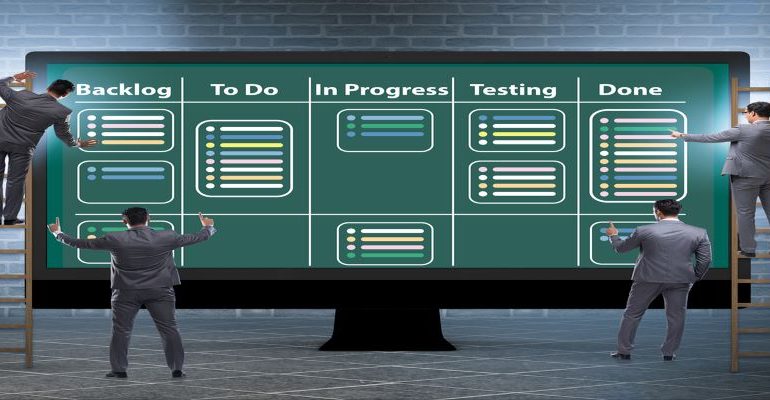
15 Software Testing Trends to Watch Out for in 2021

15 Software Testing Trends to Watch Out for in 2021
While the importance of software testing is finally being acknowledged by business enterprises all over the globe, the process itself is constantly evolving with the advent of modern technologies.
New trends, innovative tools, and dynamic strategies have transformed the process that software testing is. In this blog post, let us discuss the top 15 trends that every QA team must intend for their testing processes.
Test Automation for Agile and DevOps:
The latest Agile and DevOps QA processes bring in faster and quality releases that many enterprises can leverage easily to adopt test automation. And without a shred of doubt, test automation is the most trusted method in the QA industry of avoiding repetitive tasks and increasing efficiency.
The DevOps process substantiates proper collaboration between the allied departments of Dev and Ops as test automation tools continue to lead the testing space. Adequate usage of these tools helps achieve faster release cycles, better quality software, and delivers better solutions.
Prioritized Usability Testing for User Experience:
With the mobile app development market rapidly on the surge, the significance of software testing has also increased as mobile apps demand quality testing across various operating systems, platforms, and devices.
It is no secret that mobile apps are the major driving force for businesses these days and an effective UI coupled with a smooth usability flow is exactly what every app needs. Poor usability generally impacts customer and brand loyalty negatively hence usability testing becomes a crucial trend that must be followed by every tester. If you need more motive, consider the fact that mobile users prefer user-friendly apps at a higher frequency.
Big Data Testing:
Different businesses across industries are dealing with huge data volumes and diverse data types regularly. The mining of structured or unstructured irrespective of its size is called Big Data and it requires effective testing.
Big Data testing allows organizations to make better decisions with accurate data validations and helps improve in marketing and business strategizing with logical decisions are generated through big data testing and analysis.
IoT Testing:
With the enormous expansion of connected devices expected in the immediate future, the requirement for top-quality IoT testing is very important. IoT testing involves testing operating systems and communication protocols with the software and hardware of the IoT devices.
Several business organizations have started identifying the need for an efficient IoT testing strategy to allow well-connected smart devices that are required for end-users.
Testing for vulnerabilities in IoT devices is an important business requirement as IoT encompasses all products that are connected to the web. Therefore, it is a trend that is here to stay for many years.
Artificial Intelligence and Machine Learning:
Applications that are created through Artificial Intelligence and Machine Learning comprise features like speech recognition and gesture recognition that are predicted to advance well into the future.
However, these types of applications also need rigorous testing and validations with adequate use cases. With every industrial domain moving swiftly towards digital transformation, organizations are looking at scalable measures to accommodate the future requirements of the software.
Primarily, software applications are required to embed AI and ML into testing. This perfectly imitates user behavior with predictive analysis. Future software applications in the connected world require the testing process to leverage AI and ML.
Blockchain Testing:
Blockchain technology has revolutionized the way businesses deal with digital currencies like bitcoin. Blockchain applications are not limited to the financial world but are also used in various business fields ranging from the private sector to governmental services.
As blockchain applications come in a broader range, they present new challenges to the debugging process. And this determines the ease with which the software performs even with the increased workloads.
Therefore, the entire process of blockchain testing paves the way for efficient outsourced specialized testing services. The trend is set to continue in QA and help enterprises deliver flawless blockchain applications.
Cyber-Security Testing:
The prominence of security testing in QA has increased significantly because of various factors like frequent cyber-attacks on systems increased usage of the web and mobile apps that require high-end security, and increases importance of client data security.
It is also predicted that the surge in demand for cyber-security testing in the market will likely lead to the implementation of the latest technologies such as DevOps, DevSecOps, and Agile in the IT domain. Thus, cyber-security testing is one trend testers will have a keen eye on.
RPA Testing:
The Robotic Process Automation process of testing is an extended or advanced form of automation because it is applied to anything in a structured form. Whereas on the contrary, automation requires a software product to work upon.
The RPA process is used with very complex processes to perform test automation with AI. It helps QA teams in completing rule-based tasks with the help of developed robots that mimic human action hence RPA has the promising potential to transform the workplace and implement all the tasks performed through automation testing tools.
Performance Testing Emphasizing on Performance Engineering:
Performance has always been a major segment in the testing process. But in recent times, the focus of stakeholders and analysts alike has shifted towards performance engineering which is a complex process.
Performance engineering is a process that involves the collaboration of hardware, software, configuration, performance, and usability to deliver the highest value that meets user expectations.
QAOps:
With competition in the business world increasing every day, every industry needs software applications that are released faster with no compromise in quality and performance. This has increased the responsibility of teams significantly compared to earlier.
The constantly rising demand for quality software has made QA a crucial cog in the wheel that is software development. And with DevOps leaping, this approach paves the way for a collaboration between the development and the operations teams. Hence, the combination of QA and DevOps forms a new practice called QAOps. This is predicted to be one of the major trends of 2021.
Mobile Test Automation:
Mobile phones are a medium that has directly promulgated the rise of mobile applications. Enterprises are increasingly choosing the pathway through mobile apps as the preferred way to reach users. And automation testing is highly essential to ensure these apps work efficiently.
Mobile test automation is a trend that testers might need to follow for years to come considering the rising demand for mobile apps. Several automation testing tools are used for testing mobile apps.
Script-Less Automation:
Script-less automation is a process where test engineers are not required to compile test scripts to automate test cases. This is considered an effective advancement that helps deliver quality results in minimal time.
It has proven to be so effective that several QA organizations are using the scriptless automation tool as it allows them to save the time consumed in writing long scripts and codes. As a result, script-less automation testing is and will continue to remain a productive software testing trend in 2021 and beyond.
Multi-Device Testing:
As already iterated above, there is an increasing need for automation testing on a wide range of devices. These devices comprise mobile devices such as wearables, smartphones, smart speakers, health monitors, and more. Hence, multi-device automation testing for over a range of devices is likely to take center stage in 2021.
Enhanced Penetration Testing:
Mobile and web applications that are developed in large volumes these days have a high chance of facing vulnerabilities such as cyber-attacks and cause huge economic losses to many businesses.
It requires organizations to implement successful security strategies to avoid any foreign intrusions and keep their systems safe. To achieve this, QA teams must include enhanced penetration testing in their process.
With this process, it is convenient for teams to validate the effectiveness of a system and identify the areas that are exposed to vulnerabilities. Penetration testing is a crucial part of security testing which no QA team should consider skipping.
Hyper Automation:
The new process of Hyper Automation begins with RPA at the core with the leverage of advanced technologies such as AI and ML. Hyper Automation is extensively used in the banking and insurance sectors to accelerate tasks such as loans, mortgages, and insurance processing.
The process helps in the instant sanction of loans by simplifying the legal documentation and other processes. Hyper Automation is also used in the automobile sector to help in placing the robotics arm in an assembly line which quickens the assembling process and increases productivity.
With so much contribution, Hyper Automation is well-placed to lead the charts in software testing trends for many years to come.
Conclusion:
The above-mentioned trends are followed by many leading software testing companies to deliver quality software to their clients in a quick time. As one of the best software testing companies, we, at Sapizon Technologies, render high-quality services to businesses across various domains.
Our team of testers is well-accustomed to the latest trends in the process and implements vigilant strategies to deliver expected results for our clients. Equipped with the best infrastructure, tools, and technologies, we focus on enhancing businesses with our services. Book a free consultancy with us now.